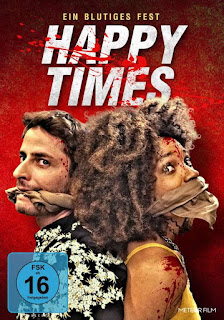For a long time I haven´t devoured a book on a Jewish/Israeli topic with such a pleasure and curiosity...
I´ve spent my every single free time this weekend listening to City of Thousand Gates by Rebecca Sacks, narrated by Lameece Issaq. I am reading a lot of literature produced in Israel or on Israeli/Jewish topics (the regular blog posts on my blog are the testimony), but I´ve been rarely impressed either by the topic or the literary depictions. This book succeeded though to deeply impress me.
With an impressive cast of characters, covering a wide variety of individualities, among both Jews and Arabs in Israel, City of Thousand Gates brings people together and separate them, following the unknown destiny´s ways.
The cast of characters is impressive: from the West Bank anglos to the Palestinian academic, the bio mom from America married with an Israeli to the young religious teenager freshly engaged that want to have a taste of the secular dating game. There is also Vera, a German journalist interested to report about Hebron and Palestinian topics, that used to snort coke with Israeli in Berlin and moved to Israel for almost the same reasons Israeli are - or used to - moving to Berlin (minus the price of Milky). There are also Palestinians applying for Israeli passport, checkpoints and tattooed soccer players, both Jewish and Arabs.
Sacks spent a couple of years in Israel, particularly the West Bank, and through the characters, their interactions - ways of talking - and the descriptions of their locations I´ve felt instantly back in Israel. This includes also the various ´anglo´ slangs as well as those used in Tel Aviv and Jerusalem. There are real people we are talking about, not some dolls-like inanimated golems brought to life for the sake of answering the market requirements when it comes to topics pertinent to Israel. There are all those contradictions, denial - as in living in a place and gently refusing to ignore its realities and hardships - and the humour, the best medicine for the everyday life under those conditions.
From the literary point of view, the author manages admirably the art of switching POWs and portraying people through their interactions and human reactions. Although the humanity is what makes us all, members of the human race, the specificities of the geography, history - both global and personal - as well as the language make us individuals with special features and particular reactions to life encounters.
Made up of different short stories with characters whose destinies intertwin - after all, it´s a small country - City of Thousand Gates maps the humans of Israel and their everyday existence in a world where history doesn´t let you breath normally. It may turn grotesque sometimes, as in the case of Emily, that shortly after escaping a terrorist attack, makes a selfie at the location of the explosion. But more grotesque is sometimes the view of people from outside, anyone, misreading facts and looking for symbols where there is none.
Rating: 4.5 stars







